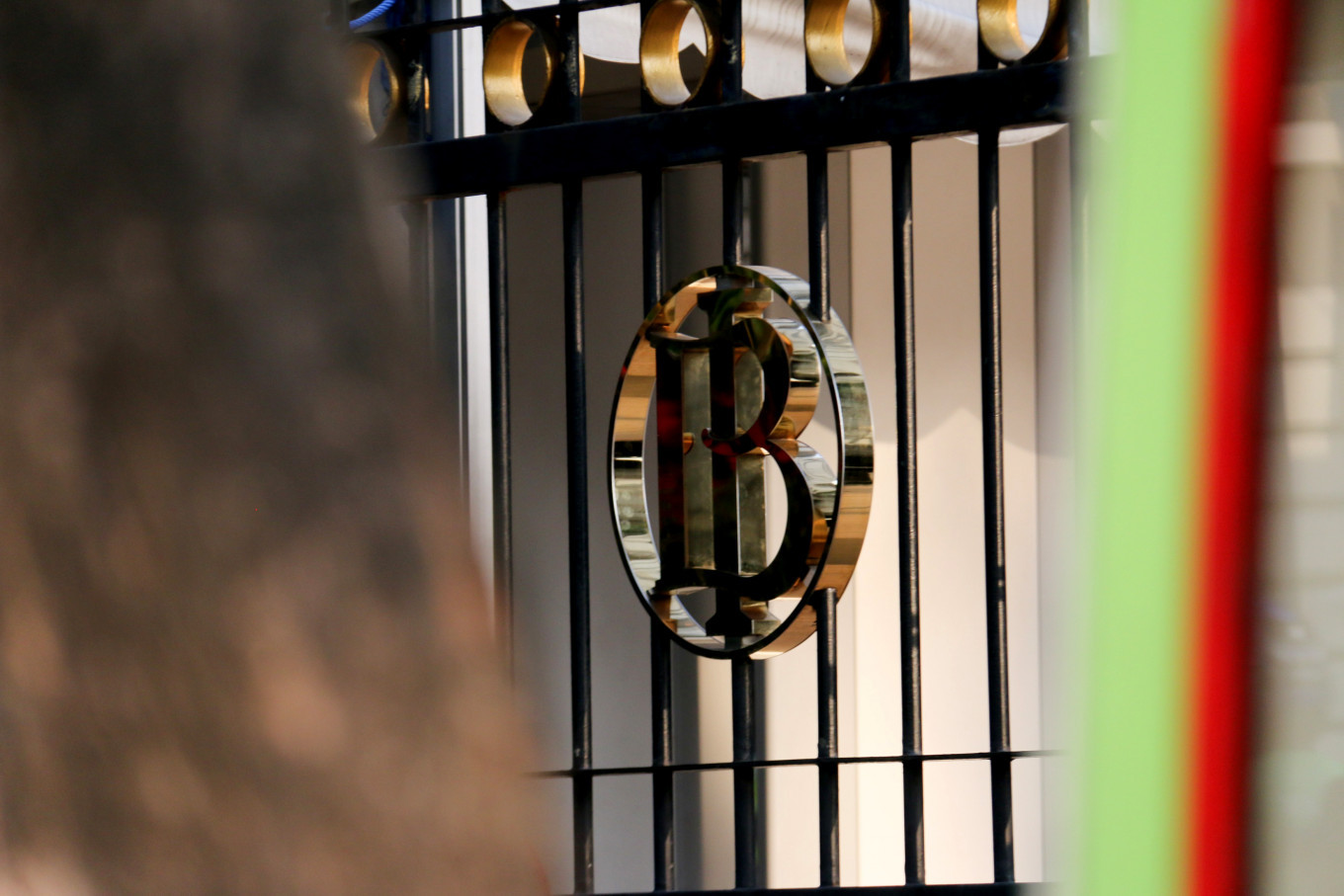Popular Reads
Top Results
Can't find what you're looking for?
View all search resultsPopular Reads
Top Results
Can't find what you're looking for?
View all search resultsBank Indonesia announces 5 measures to support rupiah amid market rout
Change text size
Gift Premium Articles
to Anyone
B
ank Indonesia (BI) announced Monday five measures to stabilize the rupiah as foreign investors sold off Indonesian financial assets from stocks to bonds and after Indonesia officially reported its first coronavirus cases.
First, starting March 16, the requirement for banks to store their dollar funds at BI, called the US$ reserve requirement ratio (RRR), would be lowered to 4 percent from 8 percent at present. Second, the rupiah RRR is also being lowered by 50 basis points (bps), but only for banks with clients engaged in export and import activities, starting April 1.
“Lowering the foreign exchange RRR will boost banks’ liquidity by $3.2 billion while lowering the rupiah RRR will support export and import activities,” BI Governor Perry Warjiyo told a news conference in Jakarta on Monday after President Joko “Jokowi” Widodo announced the first coronavirus cases in the country.
Read also: BI cuts reserve ratio, frees up $3.2b liquidity in local banks amid market sell-off
Jokowi announced on Monday morning that two Indonesians had tested positive for COVID-19. The two people, a 64-year-old and her 31-year-old daughter, had been in contact with a Japanese citizen who tested positive in Malaysia on Feb. 27 after visiting Indonesia in early February. Worldwide, more than 84,000 people have been infected with the virus and more than 3,000 have died with new cases increasingly emerging outside the country in which it is believed to have originated.
Third, BI was conducting “triple intervention in the financial market”: stabilizing the rupiah in the domestic non-deliverable forward (DNDF) and spot markets, as well as buying government bonds (SBN) on the secondary market.
The central bank has bought Rp 103 trillion (US$7.24 billion) worth of SBNs, Rp 80 trillion of which followed its assessment that the novel coronavirus may pose risks to Indonesia’s economy.
“We’ve increased the volume [of intervention] so the market is assured and confident that BI is always in the market to guard the market,” Perry said. “BI will intensify intervention in the financial market through triple intervention to stabilize the rupiah to follow its fundamental [value].”
Read also: ‘Triple market intervention’: BI buys bonds, rupiah to prop up prices amid viral rout
Fourth, the central bank now allows foreign investors who sell rupiah bonds but place their proceeds in Indonesian banks to turn them into underlying transactions in the domestic non-deliverable forward (DNDF) market. Therefore, foreign investors no longer need to hedge to offshore indexes.
“This will enable investors to commit to Indonesia, which would be strong in the future,” Perry said.
Fifth, BI also encourages foreign investors to use domestic banks as custodians for investment activities.
“The measures could be effective to stabilize the rupiah from the supply-side of the US dollar and anchor the thin domestic foreign exchange market,” Bahana Sekuritas economist Satria Sambijantoro said.
“So far, BI’s intervention to support rupiah and bond yields – including daily reverse-auctions over the past few days, amounting to Rp 2 trillion today – is focusing to resolve the demand-side problem.”
Exporters of commodities such as palm oil and coal are natural foreign exchange suppliers in the spot currency market, but recently their earnings dried up due to disruption in shipments to China, Satria explained.
Meanwhile, massive sell-offs in bond and equity markets have seen foreign investors converting their US dollars to rupiah, disrupting demand for the local currency, he added.
Read also: Disappearing act: Market braces for volatile March after $2.4b vanishes in a week
Last week, foreign investors sold a net Rp 33.6 trillion (US$2.36 billion) in both Indonesian stocks and bonds, as $5 trillion was wiped off stock markets around the world in the worst week for global shares since the 2008 financial crisis.
Over the week, the benchmark stock index, the Jakarta Composite Index (JCI), fell 7.3 percent to 5,452 and the rupiah depreciated by 4.1 percent to 14,234 per US dollar. Ten-year Indonesian government bond yields, which indicate investment risk, rose 35 basis points last week to 6.83 percent, the third-biggest increase after Turkey and Russia.










